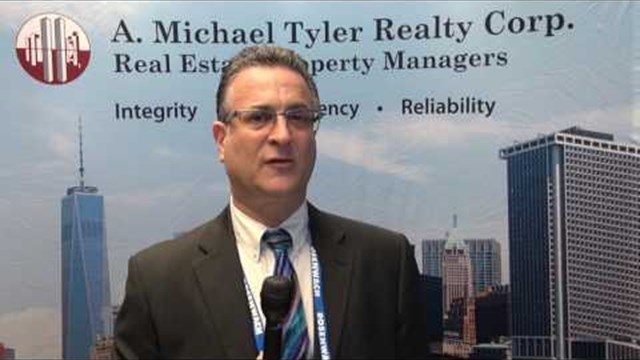A good property manager is like a hip dad. He or she may not say things like, "Hey pal, whatcha say we go toss around the ol' pigskin?" but like a hip dad, a property manager needs to have a certain set of specific traits and other, harder-to-define skills in order to be successful.
A property manager needs to be able to listen and communicate, as well as be proactive and involved, current and knowledgeable. He or she should also be levelheaded and resourceful, personable and articulate. For all the property managers diligently trying to excel, the list of "and's" goes on and on. At the end of the day however, most people working in the management industry agree that the most fundamentally important trait for a good property manager to possess is the ability to communicate and relate to people.
Communication is Essential
Good communication is the grease in a building's wheels. It is the property manager's duty to make sure everything runs smoothly, and that requires everyone involved in the building to understand one another. Conflict is generally a result of misunderstanding, often precipitated by a lack of or breakdown in communication. Like a good foreign diplomat, a property manager needs to be able to see other peoples' perspectives, to hear what they are saying, and to solve problems. The property manager needs to understand and balance the views of multiple interested parties. According to Steven Gold of New York City-based management company Hudson View Associates Inc., "It's very important that a property manager is a good listener, who is detail-oriented and follows up. Furthermore, a property manager must be able to listen, then understand and interpret what he or she is being told by the unit owners [or shareholders], the super, the board of directors, and so forth."
The property manager is the go-between for everybody associated with the building, so as Gold mentions, they need to be a good interpreter and show diplomacy: listening, understanding, and translating messages between various parties. If you are a member of your board and you have been having problems with the super or the doorman, or unit owners have been complaining, you might want to take a closer look at your manager. Do they maintain open lines of communication?
A Side Order of Knowledge
In addition to communicating well, a good property manager keeps the board of directors informed on several different levels, financially and otherwise. According to Greg Cohen of Impact Management in Queens, "A managing agent should provide two reports on a monthly basis—a financial report… and a physical report that covers the day-to-day operations of the building."
According to Cohen, the financial report should consist of a general ledger that shows the projected versus the actual budget, as well as accounts payable status reports on shareholders or unit owners. It should also include a check register showing all money disbursed for the month, as well as copies of bills, bank statements, checks, and a bank reconciliation. In short, the property manager should provide the board with ALL financial information they require.
The second report should consist of all correspondence between management, tenants/owners, the board, etc., and any other paperwork regarding the building's operations. By keeping the board of directors updated monthly, the manager can see to it that the board is informed and prepared, and, thus less likely to be caught unawares by any unpleasant surprises.
In New York City, where laws are constantly changing and new laws are constantly being created, a property manager needs to stay current and up-to-date with emerging regulations. They need to be reading the newspapers, keeping an eye out for new laws that may affect their building. Also, each manager needs to manage approaching deadlines, (for inspections, just to name one example) and bring pertinent information to the board's attention.
Queens-based property management consultant Chandra Jain emphasizes the importance of "preventive maintenance" and being attuned to problems before they arise. By staying current with changing laws and managing deadlines, a good property manager protects the board, the building, and the association against fines and other setbacks that should be handled "preventively," says Jain.
"I attend every [board] meeting," Jain continues, "and I think that every manager should, in order to be in the loop. By the time you find out [a problem] second- or third-hand, it's too late and you cannot be certain that you are receiving the correct information."
Jain also stresses the importance of having an agent who is proactive— about finding information, and about acting or reacting to the information before a potential problem arises.
This, That, and People First.
The job of a property manager is a balancing act that requires the agent to anticipate and handle the logistical issues of the building without losing sight of the responsibilities to all the people of the building. With PDAs, cell phones, and e-mail, a property manager is accessible nearly all of the time—for better or worse. According to Cohen, one of the biggest complaints about property managers today is that they do not return phone calls. They are in charge of supplies, finances, employees, professionals, boilers, and a whole slew of responsibilities that require incredible organizational and multi-tasking abilities, but ultimately, they must be adept at answering questions and dealing with people.
According to Robin Habacht of Monticello Management in Leonia, New Jersey, "Many homeowners [feel] that although their association is cared for, they as individuals [have] no representation, no one to advocate for them within the management company." As difficult as representing the board and the association may be, a good property manager cannot lose sight of anyone.
Cohen stresses balancing the logistics while still catering to people and suggests that a property manager should split their time 60/40 between being in the field and being in the office. He also recommends having an assistant manager in the office to handle calls and relay messages to the manager. Like most things in these times of Internet immediacy, a property manager is expected to act now, which translates into the necessity of anticipating future needs.
Professional Decorum, Staffing, and More
In addition to looking towards the future, a property manager must also be physically present, visiting each building in their portfolio at least once or twice a week—though not on a set visitation schedule. Managing the building's employees means keeping them on their toes, and a flexible visitation schedule helps prevent a building from falling into disarray during the periods when the staff knows that there will be no pop-ins from a manager.
According to Gold, the manager must provide support to building supers and staff. If a staffing relationship doesn't work however, says Gold, "A super fires himself." It is the manager's job to assist the super, explain to them what needs to be done, and provide enough time to handle things in an appropriate manner. In the end, a property manager has to do what is best for the building and community as a whole. Whether the manager fires a staff member, or the staff member fires himself, is a matter of perspective with the end result the same.
When dealing with professionals associated with running a building, such as attorneys, accountants, or other service providers, a good manager must also act professionally. Dealing with lawyers and accountants requires the same basic interpersonal and communication skills needed to work with anyone, with an understanding of exactly what duties a professional must perform.
In terms of accountants, by keeping the building finances in order and supplying the board of directors with the financial reports on a monthly rather than yearly basis, an organized property manager makes the accountant's task easier. Perhaps the accountant comes in once a year, in April for a tax season audit. If the manager has kept up with paperwork and has delivered it to the board, the necessary materials will already be thorough and organized properly.
The responsibilities of the attorneys, on the other hand, include collecting arrears and implementing the board's policies. By attending every board meeting, the managing agent is better able to assist attorneys in doing their job.
Whether it be inspecting a boiler, informing the board of a new law, or even making sure the board of directors have all necessary materials monthly, (especially in the event of a new manager or management company taking over) a good property manager's job is never done. If you have someone who can check the prices of oil or gas against the budget, console a tenant with a sick cat, and mediate a disagreement between two staff members, odds are you've got a keeper.
A good property manager has to be able to communicate and interact with a variety of different people and personalities, while keeping all logistics in order. It is a difficult job keeping a building's engine running 24 hours a day, seven days a week. So, if your manager is a keeper, let him or her know.
Brendan Flaherty is an editorial assistant with The Cooperator.







23 Comments
Leave a Comment